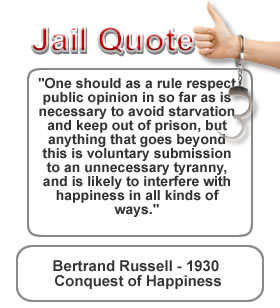
How To Become A Licensed Bail Bondsman
Whenever someone thinks about becoming a bail bondsman, their mind automatically flashes to images of “Dog the Bounty Hunter” patrolling through the streets in his enormous black SUV with an armed posse, chasing down bail jumpers. This is a much-glamorized version of the reality, however.
Outside of the television screen, there is much less action and drama involved in the bail bonds business. Training to become a bail bondsman requires a serious commitment and an investment of time, energy and money.
Each state has different requirements and regulations. Many states will require that you have no felony convictions and be of good character. The first step on your path to becoming a bondsman is to research your state’s laws about bail bonds. There are four states that do not allow bail bonds agents: Illinois, Kentucky, Wisconsin and Oregon.
To become licensed in this profession, you must undergo courses and training. Contact your state’s Department of Insurance for information about courses available in your area. Some states will have a list of requirements that must be met before you will be licensed as a bondsman. Your fingerprints may need to be filed with your state’s licensing authority. You may need to complete a written exam about state bail laws as well as take a course of 40 or more hours.
Some states, offer apprentice programs in lieu of classroom courses. This will mean working for a licensed bondsman for a time of 6 months to a year. This will give you some hands-on experience and will lead to opening your own agency once your apprenticeship is complete. While other states, like California, do not have an apprenticeship program. This is unfortunate because direct work in the bail business is the best way to understand the risk and demands in the industry. Once you have met all of your licensing requirements, you should search for and choose a surety insurance company and go over the details of the contract with the insurance company and an attorney.
If you are seeking the same excitement that Dog the Bounty Hunter enjoys week after week, you may take it upon yourself to apprehend your own bail jumpers, instead of hiring a bounty hunter. You may face certain limitations on this aspect depending on the state you intend to have your bail agency. For example, in Texas, hiring a bounty hunter is prohibited except when used through a private investigator. In Florida, a licensed bondsman is the only one who can pursue and catch fleeing fugitives.
You may be considering going into the bail bonds business with high hopes for financial gain. The annual salary for licensed bail bond agents can vary greatly. You should not expect to be earning on the higher end of the scale when you are first starting out as a bondsman. For most newly licensed bail bond agents, an average of $10 to $15 per hour is the normal income expectation.
Being a bail bondsman can be a rewarding career, but it’s important to understand that a lot goes into becoming one. The reality of this profession is not accurately depicted on television, but if you take it seriously, and walk into this career with both eyes open, it will be worth every effort you put into it.












